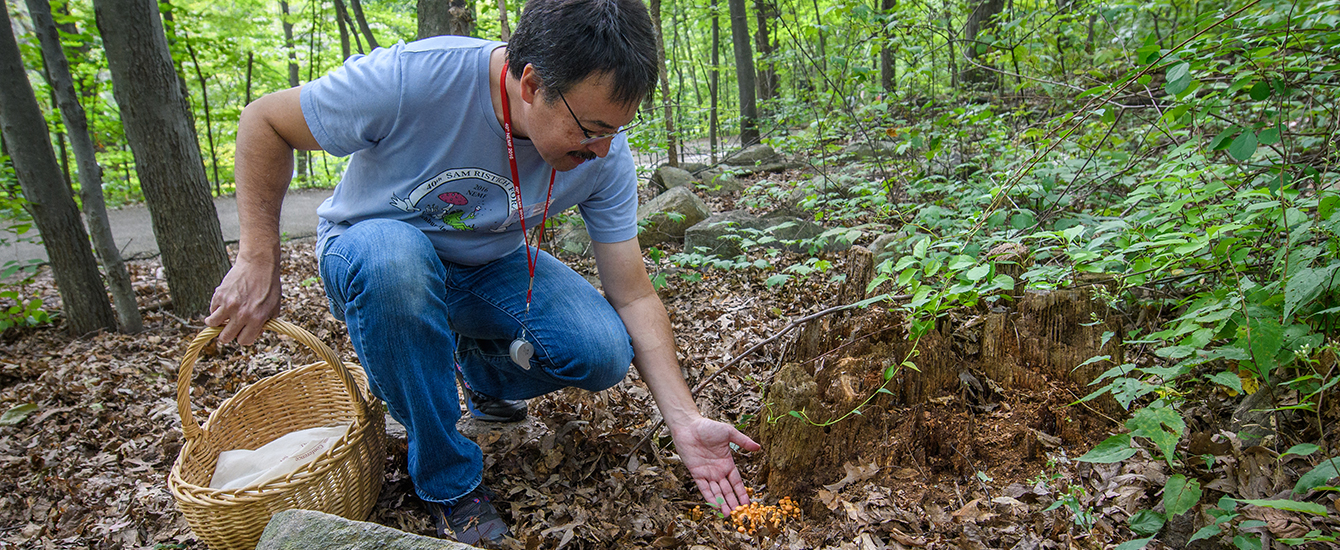Biology
The ectomycorrhizal status of Calostoma cinnabarinum determined using isotopic, molecular, and morphological methods
Document Type
Article
Abstract
Calostoma cinnabarinum Corda belongs to the suborder Sclerodermatineae (Boletales), which includes many well-known ectomycorrhizal basidiomycetes, but the genus Calostoma has been described as saprotrophic. This study combines isotopic, molecular, and morphological techniques to determine the mode of nutrition of C. cinnabarinum. δ13C and δ15N measurements were compared among co-occurring C. cinnabarinum, ectomycorrhizal fungi, saprotrophic fungi, and ectomycorrhizal plants. Isotopic profiles of C. cinnabarinum resembled those of ectomycorrhizal fungi but not those of saprotrophic fungi. For molecular analyses, ectomycorrhizal root tips were extracted from soil cores collected beneath C. cinnabarinum fruit bodies. Nuclear ribosomal internal transcribed spacer (nrITS) sequences were obtained from ectomycorrhizal root tips using fungal-specific primers and screened against C. cinnabarinum nrITS sequences. Ectomycorrhizal root tips had nrITS sequences that matched C. cinnabarinum fruiting bodies. Root tips colonized by C. cinnabarinum were also described morphologically. Several morphological characters were shared between fruiting bodies and ectomycorrhizal root tips of C. cinnabarinum. Results of isotopic, molecular, and morphological analyses indicate that C. cinnabarinum is ectomycorrhizal. Molecular analysis and observations of plant associations suggest that C. cinnabarinum forms ectomycorrhizae with Quercus. © 2007 NRC.
Publication Title
Canadian Journal of Botany
Publication Date
4-2007
Volume
85
Issue
4
First Page
385
Last Page
393
ISSN
0008-4026
DOI
10.1139/B07-026
Keywords
Calostoma, Ectomycorrhizae, fungal ecology, Isotope, molecular ecology, nrITS, Saprotrophic
Repository Citation
Wilson, Andrew W.; Hobbie, Erik A.; and Hibbett, David S., "The ectomycorrhizal status of Calostoma cinnabarinum determined using isotopic, molecular, and morphological methods" (2007). Biology. 257.
https://commons.clarku.edu/faculty_biology/257



